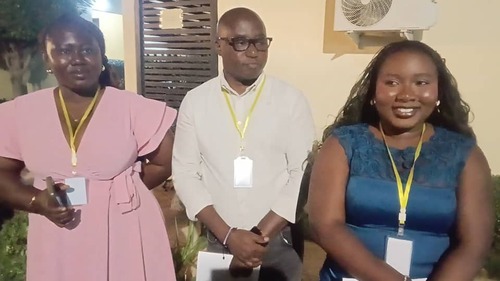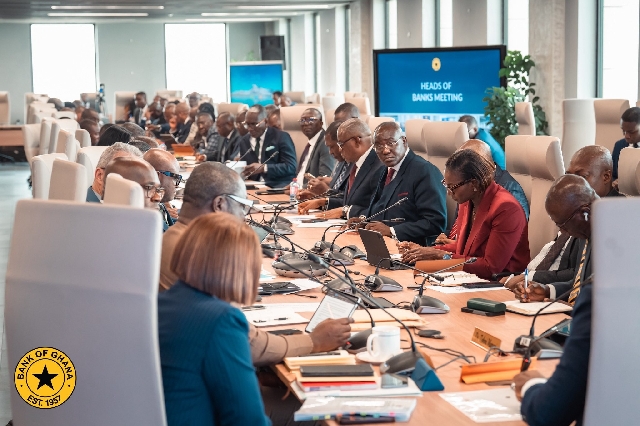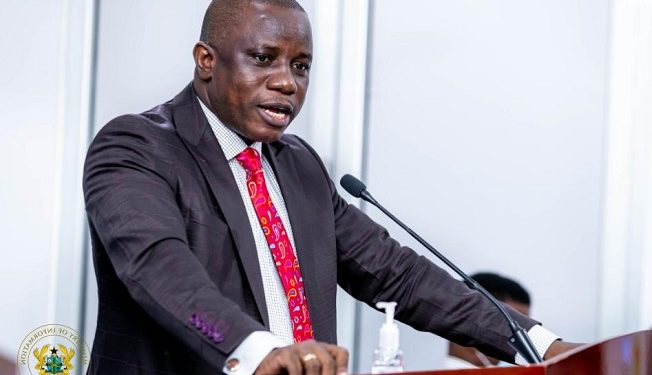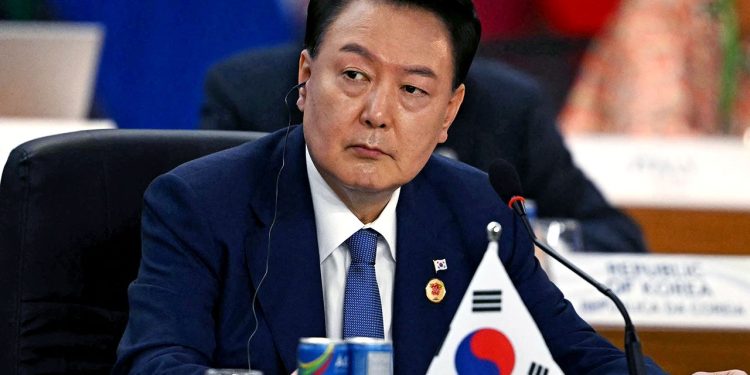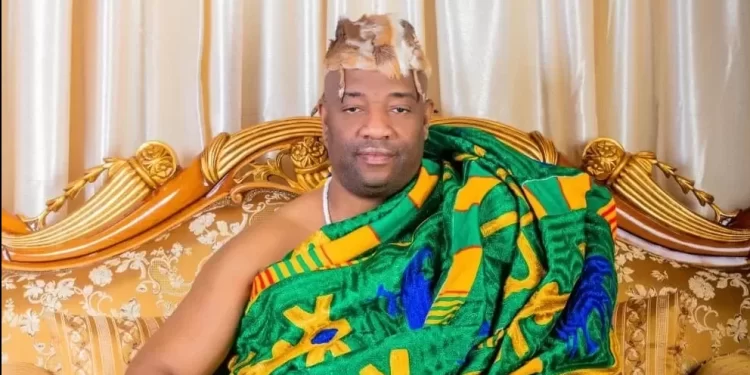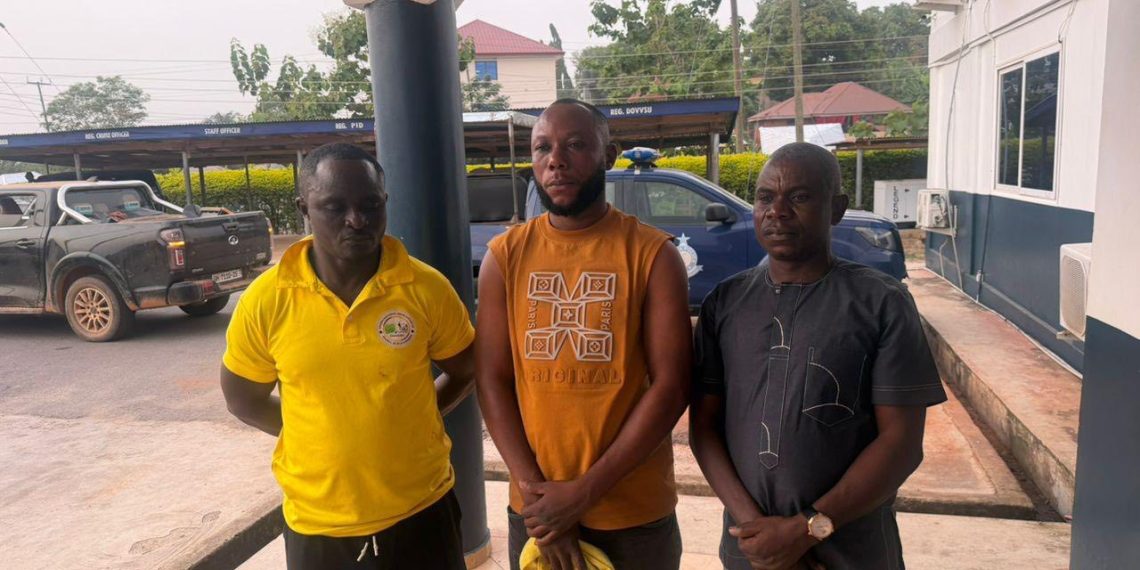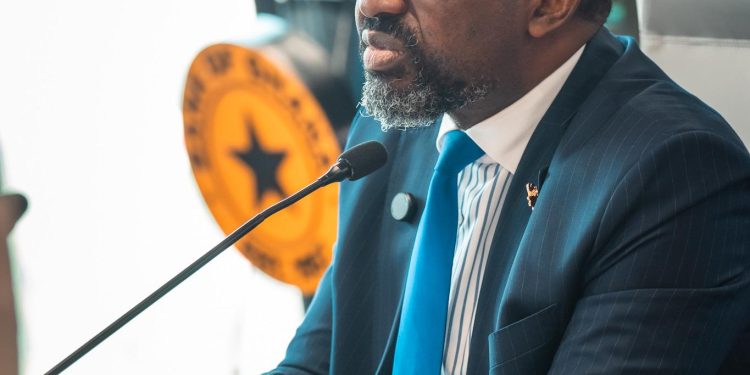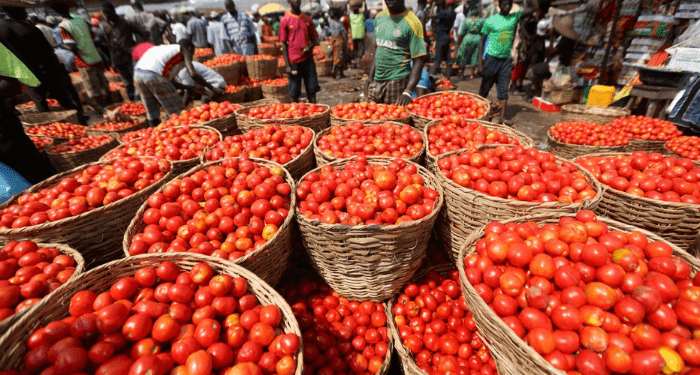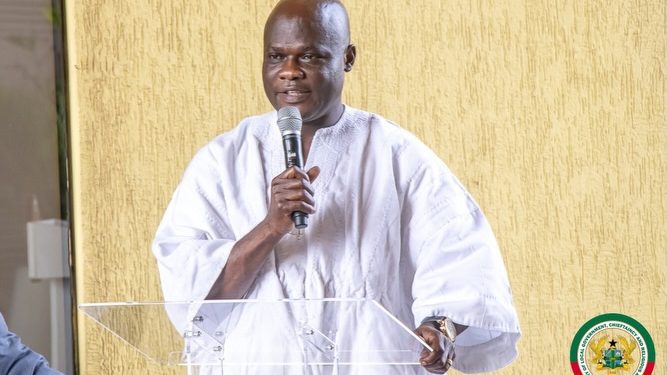The experiment of Biochar by the Millar Institute proves massive results

On the fertile fields of the Millar Institute for Transdisciplinary and Development Studies, a quiet revolution is taking root, one that promises to transform the lives of farmers across Ghana and contribute to a greener planet. Last season, the Institute launched the Grass Biochar Experiment, an ambitious initiative to test the power of biochar as a sustainable organic fertilizer. The experiment began on a modest test farm, where researchers blended biochar into the soil and closely monitored its effects on crop growth and soil health. As the weeks unfolded, the results exceeded all expectations: crops grew stronger and healthier, soil fertility improved dramatically, and yields soared. The implications of these findings extend far beyond the test plots. Biochar, produced from plant material, offers a cost-effective and environmentally friendly alternative to traditional synthetic fertilizers. Its use not only boosts agricultural productivity and food security but also holds promise for mitigating climate change by sequestering carbon in the soil. “We are thrilled with the results of the Grass Biochar Experiment,” announced the President of the Millar Institute, reflecting the excitement spreading through the agricultural community. “Biochar has the potential to revolutionize agriculture in Ghana, and we look forward to working with farmers and stakeholders to promote its adoption.” Encouraged by these remarkable outcomes, the Millar Institute is preparing to expand the experiment. Plans are underway to collaborate with farmers throughout Ghana, tailoring biochar techniques to different environments and crop needs. This initiative is part of the Institute’s ongoing commitment to sustainable agriculture, environmental stewardship, and innovative solutions for rural livelihoods. As the Grass Biochar Experiment continues to grow, so does the hope for a more productive, resilient, and environmentally conscious agricultural sector in Ghana. The Millar Institute stands at the forefront of this movement, empowering farmers with new tools and knowledge to nurture their land—and the future. Source: Apexnewsgh.com
Our Journey Has Only Just Begun” – Valedictory Speech by Dr. David Jesining Sumbo at MITDS 7th Graduation
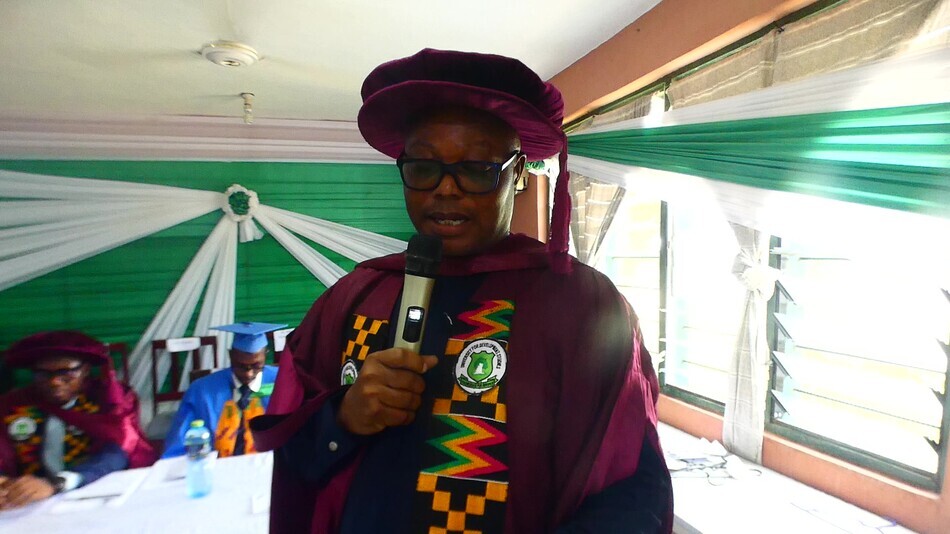
The atmosphere at the Millar Institute for Transdisciplinary and Development Studies (MITDS), Bolgatanga, was filled with pride and emotion as Dr. David Jesining Sumbo delivered a heartfelt valedictory address during the 7th graduation ceremony. Dr. Sumbo began his speech with deep gratitude, recognizing the collective effort that had carried the PhD graduands through their academic journey. “Our supervisors, mentors, advisors, and all the academic and non-academic staff of MITDS challenged us, guided us, and sometimes simply gave us a listening ear. This is very much appreciated.” He lauded the University for Development Studies (UDS) for its supervisory role, particularly through its Quality Assurance Directorate, which ensured academic excellence at MITDS. With admiration, he singled out the institution’s founder: “Prof. Millar has been the pillar of the institution, making himself available to all students, whether directly supervising them or not. No student was left stranded.” The valedictorian’s words also highlighted the often unseen role of family support. He spoke movingly of his daughter, Dr. Songbawiere, whose encouragement kept him motivated: “Anytime I raised doubts about how long I would use the certificate before retirement, she reminded me that the certificate is not for me, but for the children. That gave me a completely different perspective.” Reflecting on the struggles and triumphs of the doctoral journey, Dr. Sumbo described it as both exciting and frustrating. “As adult learners, we had to juggle between responsibilities at home and at work while maintaining high-quality standards. It was not easy, but it is fulfilling to know that you have contributed in your own little way to knowledge.” He commended his colleagues—clergymen, academics, development workers, businessmen, for becoming a family through the shared rigors of their studies. Their bond, he said, should not end at graduation: “Our friendship and comradeship have deepened over the period. Let’s continue to forge ahead to impact the world with our new skills acquired based on the MITDS philosophy.” For Mr. Sumbo, the greatest lesson of the PhD was not just academic achievement but a deeper humility and curiosity. “The more we learn, the more we realize how much remains to be understood. Somewhere, something incredible is waiting to be known,” he said, quoting Carl Sagan. As he closed, Dr. Sumbo urged his fellow graduates to see development as a lifelong collective mission: “Development is not a destination, it is a continuous, collective journey and ours is only just beginning. So let’s not stop here. Let’s stay curious, stay humble, and continue searching—not just for answers, but for better questions.” Source: Apexnewsgh.com
UDS Vice Chancellor Calls for Swift Chartering of MITDS at Seventh Graduation

The Vice Chancellor of the University for Development Studies (UDS), Prof. Seidu Alhassan, represented by Prof. Abdulai Abubakari, has urged government and regulatory bodies to expedite the process of granting a Presidential Charter to the Millar Institute for Transdisciplinary and Development Studies (MITDS). He made the call during the Institute’s seventh graduation ceremony held on Saturday. Prof. Abubakari, speaking on behalf of the UDS Vice Chancellor, said it was both an honour and a privilege to be part of the milestone celebration of MITDS, describing the Institute as “a cherished baby of UDS.” “Since the inception of MITDS, UDS has played her mentoring role to the fullest. We have provided lecturers, supervised student theses, and examined works to support the Institute from day one,” he remarked. He revealed that UDS had recently renewed its affiliation certificate with MITDS to strengthen their collaboration. He also expressed appreciation for the space MITDS had offered UDS to mount its distance education programme. Touching on the future of MITDS, Prof. Abubakari commended the Institute’s progress in teaching, research, publications, and community service, describing their achievements as “worth mentioning and emulating.” He, however, emphasized the importance of the next step in its journey. “To be found worthy of a Presidential Charter is a great landmark in the academic ladder. It is only then that MITDS can award her own degrees in place of UDS degrees,” he stressed. He called on the Ghana Tertiary Education Commission (GTEC), government, GETFund, and other support agencies to assist MITDS, especially in expanding its ICT and Artificial Intelligence infrastructure. To the graduates, the Vice Chancellor offered words of encouragement and a challenge for lifelong learning. “Education is a life-long endeavor. The conferment of a degree today is only another phase of your academic life. Feel challenged to expand your horizon and make yourself more relevant and marketable for your family, your country, and the world at large,” he urged. He reminded the graduates that they would be carrying UDS certificates and, therefore, must be “worthy ambassadors of their alma mater and shine their light wherever they find themselves.” With blessings and good wishes, he concluded his address before proceeding with the conferment of degrees. Source: Apexnewsgh.com
MITDS Chairman Calls for Support as Institute Marks 7th Graduation

The Millar Institute for Transdisciplinary and Development Studies (MITDS) on Saturday, September 20, 2025, held its seventh graduation ceremony in Bolgatanga, marking yet another milestone in the institute’s 11-year journey of academic excellence. Chairman of the MITDS Council, Naa Ganglaar Bog-Belagr Tater V, in his address, recalled the institute’s humble beginnings in 2014 and its growth into a recognized center for higher learning. He described the journey as “long and interesting,” adding that he felt honored to witness its transformation from afar in the early years to serving closely as Council Chairman today. “Last year, I pledged on behalf of the Council to continue the unfinished development agenda of our predecessors,” he reminded the gathering. “I wish to reiterate this pledge and commitment. We will continue to support the academic and administrative progress of MITDS.” The Chairman expressed gratitude to partners who have stood by the institution, including the University for Development Studies (UDS), MITDS’ affiliate institution; the Ghana Tertiary Education Commission (GTEC), which is preparing MITDS for chartering; and the National Investment Bank (Bolgatanga branch), which supported the institute with its first overdraft facility when all other banks turned them down. Highlighting the institute’s achievements, Naa Ganglaar proudly noted that MITDS has so far produced 36 first-degree holders, 22 MPhil graduates, and 37 PhDs. “I am very proud to be a Council Chairman who is part of such remarkable deliverables,” he said. On the future of MITDS, he outlined major milestones, including the reaccreditation of MPhil and PhD programs, the establishment of new faculties and departments, partnerships with international institutions such as Broos Institute in the Netherlands and LUITEBM University in Zambia, as well as collaborations with SOFT Advisory Consulting and UDS Distance Education programs. He further called on government and development partners to support MITDS with critical infrastructure such as a library complex, IT facilities, a conference hall, and an administration block. “Every infrastructure seen and unseen was fully funded from internal and private sources,” he stressed. “There has never been any donor support since the inception of the institute in 2014. If we want MITDS to do more, they will need support.” The Chairman also urged national policymakers to consider a dedicated Grass Economy Policy for Northern Ghana, drawing from MITDS’ groundbreaking research on the use of dry grass, which he believes can reduce bushfires and their impact on climate change. Turning his attention to the graduates, Naa Ganglaar commended the 11 PhD candidates prepared to receive their degrees. “I congratulate them in advance and admonish them to continue to make us proud wherever they find themselves,” he said. “They have a duty to give back to their families, the Nation, and the World at large.” With those remarks, the Chairman formally declared the congregation duly constituted and invited the Vice Chancellor of UDS to perform the statutory function of conferring degrees. Source: Apexnewsgh.com
Millar Institute Marks Seventh Graduation, Unveils New Faculties and Bold Research Innovations

The Millar Institute for Transdisciplinary and Development Studies (MITDS) in Bolgatanga has held its seventh graduation ceremony, with President of the Institute, Prof. David Millar, announcing major academic and research breakthroughs that position the institute as a growing force in Ghana’s higher education landscape. Prof. Millar, addressing the gathering with what he described as “extreme excitement,” said the event was not only a celebration of academic achievement but also a continuation of the Institute’s journey following its 10th anniversary last year. “Today, we are marking the seventh graduation event of MITDS. This is no mean achievement and you all took active part in getting us this far,” he noted. The President revealed that MITDS has secured accreditation to expand from one faculty to three, with newly created departments covering culture and development studies, indigenous innovation and communication, and endogenous education and lifelong learning. He urged stakeholders to support the promotion of these programs. “I wish to call on you all to help advertise these new faculties and programmes when they are up and running,” Prof. Millar appealed. In a bold move, MITDS has also developed what Prof. Millar described as “the first of its kind in Ghana”, a Post-Doctoral and Post-Master Research Programme designed to sharpen the skills of young academics to produce world-class research. Highlighting the Institute’s flagship Grass Economy Project, Prof. Millar detailed groundbreaking research that is turning ordinary grass into economic products such as charcoal briquettes, brown paper alternatives to plastics, and biochar for soil fertility. “This landmark achievement has the potential of cascading into a massive Grass Industry for Northern Ghana. It will simply turn grass, a nuisance in northern Ghana, into grass as an economic commodity,” he declared. The project, he noted, has already attracted global attention, with the Food and Agriculture Organization (FAO) featuring it among its international success stories. Prof. Millar acknowledged challenges such as inadequate infrastructure and staffing. He explained that MITDS has never received dedicated government or donor funding for infrastructure and continues to rely on internal resources. Despite this, he praised the commitment of the Institute’s council and management, led by Chairman Naa Ganglaar Bog-Belagr Tater V, for keeping MITDS on track. In line with its statutes, MITDS has upheld a Disability Clause, supporting students with impairments to complete their studies. Prof. Millar cited the case of a PhD student with visual impairment who was able to graduate before his passing, as well as another graduate with walking impairment. As eleven PhD students graduated under the mentorship of the University for Development Studies (UDS), Prof. Millar left them with a simple but striking message: “If you like the experience you have had at MITDS, tell others. If you don’t like the experience, then tell us.” Prof. Millar reaffirmed the Institute’s commitment to providing “quality tertiary education with a difference” despite financial constraints, stressing that MITDS would continue to innovate, collaborate, and contribute solutions to Ghana’s development challenges. Source: Apexnewsgh.com
The Power of Grass Biochar in Sustainable Agriculture and Mitigating Climate Change

Feature By Ngamegbulam Chidozie Stephen As I traveled through the Upper East, North East, Upper West, Northern, and Savannah regions, I heard a recurring theme from farmers: frustration. The source of their frustration was not drought, pests, or diseases, but rather the high cost of agrochemicals, particularly fertilizers. However, their concerns are deeply intertwined with the escalating impacts of climate change. Farmers in these regions, who rely heavily on agriculture for their livelihoods, expressed their concerns about the escalating prices of fertilizers. They lamented that the high cost of these essential inputs was eating into their profits, making it difficult for them to sustain their farming businesses. Climate change has exacerbated this issue, as rising temperatures and changing rainfall patterns have led to decreased crop yields, forcing farmers to rely more heavily on agrochemicals to maintain productivity. Moreover, the intensive use of chemical fertilizers can lead to soil degradation, water pollution, and loss of biodiversity – all of which are further exacerbated by climate change. As temperatures rise, soil moisture decreases, and extreme weather events become more frequent, the use of chemical fertilizers can have devastating consequences for the environment. The farmers’ concerns are not unfounded. Climate change is projected to increase temperatures in West Africa by up to 3.5°C by 2100, leading to more frequent droughts, floods, and heatwaves. This will have a disproportionate impact on smallholder farmers, who are already struggling to adapt to the changing climate. Grass Biochar a game changer The concept of biochar has been around for over 2,000 years, dating back to the “slash-and-burn” agricultural method practiced by ancient civilizations. However, the modern understanding and application of biochar as a tool for environmental management and climate change mitigation have developed significantly over the past few decades. The term “biochar” emerged in the early 2000s, in conjunction with growing concerns about soil management and carbon sequestration.¹ Since then, research and development of biochar technologies have accelerated, with various organizations and initiatives promoting its use as a sustainable solution for environmental and agricultural challenges. Some notable milestones in the development of biochar include: A. 2001: The International Biochar Initiative (IBI) was established to promote the use of biochar for environmental management and climate change mitigation. B. 2009: The IBI published a report highlighting the potential of biochar to mitigate climate change by sequestering carbon in soils. C. 2012: Researchers began exploring the use of biochar as a soil amendment to improve soil fertility and reduce greenhouse gas emissions. D. 2024: The Biochar Basics series was published, providing introductory information on biochar used as a container substrate component. Today, biochar is recognized as a multifunctional material with various applications, including carbon sequestration, soil fertilization, water filtration, and contaminant immobilization. Innovative Grass Biochar Offers Promising Solutions for Climate Change and Sustainable Agriculture However, despite all these years of Biochar existence, no scientist or researcher has come out with the innovation of ‘Grass Biochar’. Fortunately, following the skyrocketing increase of chemical fertilizers and some other farming inputs which has become huge challenge for farmers especially in the northern parts of Ghana, in a groundbreaking development, Prof. David Millar of the Millar Institute for transdisciplinary and Development Studies (MITDS) went into research and later came out with ‘Grass Biochar’, an organic fertilizer with the potential to significantly combat climate change while promoting sustainable agriculture. This innovative product harnesses the power of biochar, derived from grass, to provide numerous environmental benefits. One of the key advantages of ‘Grass Biochar’ is its ability to store carbon in the soil for extended periods. By converting grass into biochar, the carbon is locked away, effectively reducing atmospheric CO2 levels and helping to slow global warming. Studies indicate that widespread adoption of biochar could remove up to 10 gigatons of CO2-equivalent from the atmosphere annually, with the potential to decrease global greenhouse gas emissions by 10-20%. In addition to its carbon-sequestering properties, Grass Biochar enhances soil health by improving fertility, structure, and water-holding capacity. This leads to better plant growth, reduced soil erosion, and healthier ecosystems, as resilient soils can absorb and store even more carbon. Moreover, Grass Biochar plays a vital role in reducing greenhouse gas emissions. It has shown effectiveness in lowering nitrous oxide (N2O) and methane (CH4) emissions from soils. By promoting efficient nutrient cycling, it minimizes the need for fertilizers, thus further decreasing N2O emissions. Grass Biochar also supports regenerative agriculture practices, which promote soil conservation and biodiversity. By utilizing readily available biomass like grass, its production encourages sustainable land management while also addressing the issue of waste, as grass is often viewed as a nuisance. The benefits of Grass Biochar extend to climate change adaptation as well. Fields enriched with biochar exhibit improved drought resilience and enhanced water retention, helping farmers navigate climate variability and extreme weather conditions effectively. Furthermore, the potential impact goes beyond environmental benefits. The Grass Biochar initiative could create job opportunities in production and application sectors. Enhanced soil fertility leads to improved crop yields, thereby bolstering food security and availability. To fully realize the climate change mitigation potential of Grass Biochar, government support is essential. Recommendations for action include research funding to explore optimal production methods and scalability, as well as policy incentives such as subsidies or carbon credits to encourage farmer adoption. Educating farmers, policymakers, and stakeholders about the benefits of biochar and best practices will also be crucial for successful implementation. Prof. Millar’s Grass Biochar not only presents a viable solution to tackle climate challenges but also promotes sustainable agriculture, ultimately contributing to a more secure food future. Engaging Prof. Millar, he emphasized that the resources required for grass biochar production are readily available at the local level, unlike chemical fertilizers. He revealed the project has reached 11 communities across 5 regions, aims to train women’s groups in the production of grass biochar, a revolutionary organic fertilizer. The impact of this initiative has been nothing short of remarkable. Women who were once struggling to make ends meet are now equipped with the knowledge
Architect Salifu Yakubu Honored for Outstanding Contributions

Architect Salifu Yakubu’s remarkable professional journey has been recognized with a honorary doctorate degree by the Millar Institute for Transdisciplinary and Development Studies (MITDS) and Broos Institute for Afrocentric Studies and Research. Apexnewsgh reports This prestigious honor acknowledges his distinguished career, outstanding contributions to the field of architecture, and his commitment to giving back to his community. Born in 1959 in Jerry, a small town in the Northwest Region of Ghana, Architect Millar’s academic journey began with his secondary school education at Jerry Secondary School from 1972 to 1979. He excelled in his studies, obtaining the General Certificate of Education (GCE) Ordinary Level with distinction in 1979, followed by the GCE Advanced Level certificate with outstanding results in 1981. Architect Yakubu’s passion for architecture led him to pursue a professional degree program at the Kwame Nkrumah University of Science and Technology (KNUST). He completed the six-year program in 1986, earning both his first and second degrees. His academic excellence was recognized with the prestigious Frank Lloyd Award as the best graduating student. After completing his national service at the Development Office of Architecture at KNUST, Architect Millar was awarded a Rotary International Fellowship to pursue a Master’s degree in Urban Planning at San Jose State University in Silicon Valley. He graduated in December 1988 and furthered his education at the University of the Western Cape, pursuing a program in Urban Development Administration in 1991. Architect Yakubu’s professional career took a significant turn when he partnered with another architect to establish Memorial Associates, an architectural firm dedicated to achieving higher levels of customer satisfaction. Throughout his illustrious career, Architect Millar has demonstrated exceptional leadership, expertise, and commitment to excellence, earning him the respect and admiration of his peers and clients. In 1996, Architect Yakubu participated in a 10-day visit to Ghana with 125 Rotarians, resulting in a $500,000 donation to support Ghana’s polio eradication efforts. He also facilitated a $50,000 grant from Governor Jin Walker of California for a yellow fever vaccination project in the Northern Region. Architect Yakubu’s expertise in urban planning and development has been sought after globally. From 2002 to 2008, he led a team of 20 international consultants in planning and developing a framework for a new smart town in California, with a capital infrastructure cost exceeding $1.5 billion. In the United States, Architect Yakubu managed the City of San Jose’s One Stop Permit Center, a novel approach to providing comprehensive municipal development services. This initiative became a model for large cities in the USA. During his 24 years of public sector employment, he rose to the rank of Division Manager in the 10th largest city in the USA, San Jose. In 2015, Architect Yakubu registered Memarie Global Associates (MGA), a firm specializing in timeless design. As Managing Director of MGA, with offices in Tema and Tamale, he has undertaken various projects, including a supermarket complex in Vitting, Tamale, and a proposed urban design and scaling model for a Special Forces training school at Nkonya Alavanyo. Architect Yakubu’s commitment to sustainable community development in Northern Ghana is genuinely appreciated. In 2018, he prepared a comprehensive development plan for the Tamale Central Hospital, which was utilized to secure a multi-million-dollar grant. In 2021, Architect Millar prepared visionary plans for two renowned institutions in the Northern Region. The first was a comprehensive urban design plan for the Tamale University, which will serve as a constitution for the university’s future development. The second was the Bewa Palace Redevelopment Plan, a comprehensive blueprint for the design and development of a palace complex for the King of Dagbon. Architect Yakubu’s generosity and compassion were evident in 2019 when he was commissioned by the Chief of Tuna to design a model school complex. He provided his services free of charge, designing a complex comprising a kindergarten, elementary school, junior high school, senior high school, assembly hall, cafeteria, administration building, and IT center. Throughout his career, Architect Yakubu has demonstrated a passion for volunteerism and nonprofit work. His commitment to addressing the needs of vulnerable communities in the Northern Region has driven him to cultivate relationships with like-minded individuals and organizations abroad. These partnerships have enabled him to bring much-needed assistance to vulnerable communities, focusing on education, healthcare, and access to portable drinking water. Since 2015, Architect Yakubu has collaborated with philanthropist Mr. Jim Walker from California to donate significant quantities of books and electronics equipment to the Technical University College of Ghana. These donations have been instrumental in stocking the library and laboratories, providing students with access to valuable resources and equipment. In 2022, Architect Yakubu partnered with the United Islamic Cultural Trust of Ghana to contribute substantial financial resources towards constructing 41 water wells in 23 villages. This initiative has improved access to clean water for countless individuals and communities. Additionally, four mechanized boreholes were constructed in four villages, and one mosque was built in a village. Seven secondary and tertiary education scholarships were also provided, empowering students to pursue their academic goals. Architect Yakubu’s commitment to giving back to his community and supporting education, healthcare, and access to clean water is truly inspiring. His philanthropic efforts have made a tangible difference in the lives of many, and his dedication to his profession has earned him the respect and admiration of his peers. Currently, Architect Yakubu serves as a City Planner with the City of East Palo Alto in the United States. He is on sabbatical from the Technical University College of Ghana, where he held the position of Head of the Department of Architecture and Planning. Architect Yakubu’s professional affiliations include membership in the American Planning Association, American Institute of Certified Planners, Build It Green, American Institute of Architects, Ghana Institute of Architects, and the Ghana Institute of Planners. In 2024, Architect Yakubu embarked on a personal search and rescue mission to Ghana, where he discovered MITDS and its special contribution to education in Ghana, particularly in Northern Ghana. He generously offered his services on a voluntary basis, leveraging his
Mrs. Lydia Mamata Millar Honored with Honorary Doctorate Degree for Lifetime of Selfless Service
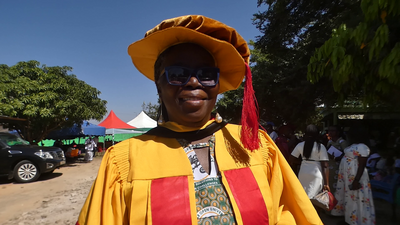
In a grand ceremony, Mrs. Lydia Mamata Millar was conferred with a honorary doctorate degree by the Millar Institute for Transdisciplinary and Development Studies and Broos Institute for Afrocentric Studies and Research. Apexnewsgh reports This prestigious award recognizes her illustrious 38-year professional career and tireless dedication to promoting education at all levels in Ghana. Born in 1960 in Navrongo, Ghana, to Madam Cathrine Kouchogba Falli and Mr. Bawah Tei, Mrs. Millar is the second of several children. Her academic journey began at United Middle School in Tamale in 1965. She later attended Navrongo Secondary School, completing her secondary education in 1979. Mrs. Millar’s passion for education led her to pursue further studies at the Tamale Polytechnic, where she completed her catering courses in 1982 and 1987. Her academic achievements paved the way for her employment with the Ghana Education Service, and she was posted to the Bolgatanga Secondary School. Throughout her distinguished career, Mrs. Millar has demonstrated unwavering commitment to education and community development. Her contributions have had a profound impact on the lives of countless individuals, and her legacy continues to inspire future generations. The honorary doctorate degree conferred upon Mrs. Millar is a testament to her hard work, dedication, and passion for education. The Millar Institute for Transdisciplinary and Development Studies is honored to recognize her achievements and celebrate her contributions to the field of education. As highlighted in her citation, Mrs. Millar’s academic journey took her to the University of Education, Winneba, Kumasi campus, where she earned a diploma in catering in 2004. Her dedication to her profession led to steady promotions, culminating in her retirement in 2020 as a Chief Domestic Bursar, the highest rank in her field. Throughout her career, Mrs. Millar demonstrated exceptional leadership and a passion for providing nutritious meals to school children. Her commitment to her work left a lasting impact on every school she was posted to, earning her the respect of her peers, secondary school administrators, and national educational authorities. In addition to her professional achievements, Mrs. Millar has also made significant contributions to her community. She was elected as the foundation treasurer for the National Association of Metros and Business, a position she held for two consecutive terms from 2004 to 2010. Her transformational leadership style and ethical approach earned her the trust and respect of her colleagues, leading to her election as national president of the association from 2010 to 2016. The seeds of this achievement were sown in 1990 when Mrs. Millar, without her husband’s knowledge, used her personal funds to acquire a plot of land. Upon her husband, Professor David Miller’s return to Ghana in 1992, she persuaded him to join her in transforming the land into a thriving institution. Today, the Millar Institute stands as a testament to their shared vision and dedication. Throughout her career, Mrs. Millar has made significant contributions to the establishment and growth of the Institute. Notably, she paid the first institutional accreditation fee of 40,000 cedis, a remarkable gesture that underscores her commitment to excellence. As the Institute celebrates its 10th anniversary, Mrs. Millar’s legacy serves as a shining example of her life-long social investments and dedication to education. One notable example of her philanthropy is the construction of a 50-bed capacity student hostel in the Upper West region. This gesture helped alleviate the acute accommodation crisis faced by students and staff at the University for Development Studies (UDS) campus. Furthermore, Mrs. Millar provided free accommodation to students from poor backgrounds, demonstrating her commitment to promoting access to tertiary education for all, regardless of their socio-economic status. Mrs. Millar’s entrepreneurial spirit and dedication to addressing challenges led her to establish a restaurant, popularly known as the “Bush Canteen,” on the UDS campus. This initiative provided decent and affordable meals for students, with those from poor backgrounds occasionally receiving free meals to support their survival on campus. In 2020, Mrs. Millar also contributed to the expansion of educational infrastructure in her village in the Upper West region by constructing a kindergarten classroom. This gesture significantly enhanced access to education and kept children engaged in a conducive learning environment. Throughout her lifetime, Mrs. Millar has sponsored numerous individuals, both family members and non-family members, to pursue various levels of education, including primary, secondary, and tertiary. Her selfless contributions have transformed lives, fostering a brighter future for generations to come. For over three decades, Mrs. Millar has demonstrated unwavering compassion and kindness, particularly towards the mentally challenged and street children in the Bolgatanga Municipality. Every festive occasion since 1989 has seen her selflessly cooking for these individuals, ensuring they feel seen and cared for. Her philanthropic efforts extend to her role as a foundation board member of the St. John Special School in Navrongo, where she has provided cash and in-kind donations to support the school’s needs. Her commitment to education and the well-being of vulnerable populations is truly inspiring. Throughout her career, Mrs. Millar has showcased her exceptional culinary skills, establishing a reputable restaurant in 2002. Her restaurant has earned several awards, including Best Restaurant for the years 2003, 2004, and 2005. Even in retirement, she continues to receive invitations for catering services, often providing them for free. As a successful entrepreneur, Mrs. Millar has also invested in a guideline, earning her the prestigious Best National Dealer Award in two categories in 2014. Her dedication to mentoring and training young girls in the culinary arts has had a lasting impact on her community. In her retirement, Mrs. Millar has found joy in parenting her grandchildren, embracing her role as a traditional grandmother with passion and delight. Her selflessness, kindness, and contributions to humanity have earned her the respect and admiration of all who know her. In recognition of her remarkable life’s work, the Academic Board and Governing Council of the Millar Institute for Transdisciplinary and Development Studies and the Bros Institute of the Netherlands confer upon Mrs. Lydia Mamata Millar a conjoint honorary doctorate degree. This honor celebrates her lifetime of
Millar Institute Goes Global: Signs Historic MoU with Broos Institute

In a significant development for higher education, the Millar Institute for Transdisciplinary and Development Studies (MITDS) has formed a strategic partnership with the Broos Institute for Afrocentric Studies and Research in the Netherlands. Apexnewsgh reports This collaboration marks a pivotal moment for MITDS, positioning it on the international academic map. Professor Millar, the enthusiastic president of MITDS, expressed his excitement about the new alliance. “This partnership is an incredible opportunity to bridge the gap between Africa and the Western world,” he declared. “It will foster cultural exchange and understanding, which is vital in today’s interconnected world.” Through this collaboration, students from MITDS will gain the chance to travel to the Broos Institute for Afrocentric Studies and Research, immersing themselves in diverse cultures and learning experiences. Conversely, students from these institutions will have the opportunity to explore Africa’s rich heritage, gaining insights into its traditions and history. Marvin Hokstam, the Executive Director of the Broos Institute, shared Professor Millar’s enthusiasm. “African culture is invaluable and should be celebrated,” he stated passionately. Hokstam emphasized the importance of uncovering Africa’s origins and traditions, many of which have been overshadowed by the legacy of slavery. “This collaboration will allow us to delve deeper into Africa’s history and cultural identity,” he added. “Together, we will uncover the continent’s hidden treasures and promote cross-cultural understanding.” Taking a tangible step towards deepening the partnership, Professor Millar generously handed over a portion of MITDS’s facilities to the Broos Institute. The handover ceremony was filled with optimism, with Hokstam beaming with excitement. “We are thrilled to embark on this journey with the Millar Institute,” he said. “This partnership will foster meaningful exchange, research, and growth. We’re grateful for Professor Millar’s generosity and vision.” As MITDS embarks on this international venture, it cements its role as a leading beacon of transdisciplinary learning and cultural exchange. This historic partnership not only promises to elevate educational opportunities but also opens new pathways for students, scholars, and communities, paving the way for a brighter, more interconnected future. Source: Apexnewsgh.com Contact: +233256336062/ +233248250270
Dr. Hafiz Bin Salih Commends Prof. David Millar’s Visionary Leadership
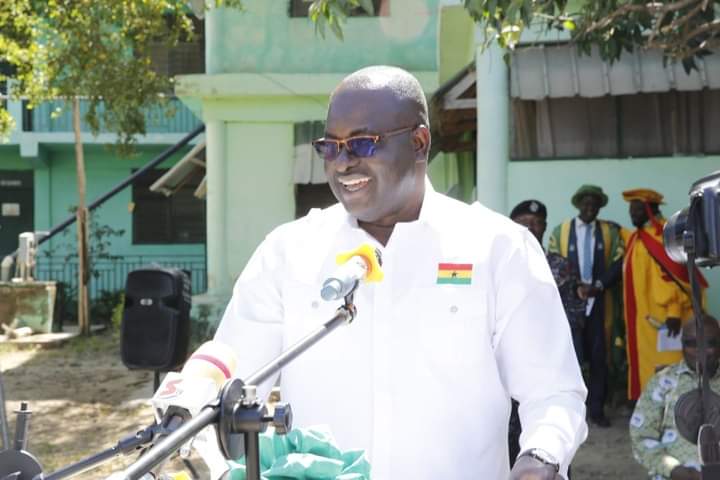
Dr. Hafiz Bin Salih, Upper East Regional Minister, graced the 6th congregation and 10th anniversary of Millar Institute for Transdisciplinary and Development Studies (MITDS) in Bolgatanga as the guest of honor. Apexnewsgh reports In his speech, he commended Prof. David Millar, the founder and former Pro Vice-Chancellor of University for Development Studies, for his visionary leadership in establishing MITDS despite initial discouragement. “Today, Prof. Millar’s perseverance has paid off, as evidenced by the impressive quality of graduates produced by the institute”. The ceremony saw eight PhDs and six MPhils receive their degrees, while Madam Lydia Mamata Bawah Millar and Dr. Salifu Yakubu were conferred honorary doctorate degrees. Dr. Hafiz Bin Salih’s presence underscored the importance of MITDS’ contributions to education and development in the region. As a seasoned administrator and development specialist with over 24 years of experience, Dr. Bin Salih’s endorsement of MITDS’ achievements carries significant weight. According to the Regional Minister, MITDS’ milestone celebration demonstrates its commitment to transdisciplinary research and development, aligning with the mission of the University for Development Studies. The institute’s innovative approach to education, leveraging technology for open admission, tuition, assessment, and certification, has earned recognition from peers and stakeholders. Dr. Hafiz Bin Salih demonstrated his commitment to education by supporting Millar Institute for Transdisciplinary and Development Studies (MITDS) with a generous donation of GHC 20,000. Additionally, he provided GHC 5,000 to recognize the best students, with plans to make this an annual award to motivate students. This type of support can have a significant impact on students’ academic journey. In fact, recognizing students’ achievements through awards can foster a sense of community and encourage others to strive for excellence. The event drew esteemed guests, including officials from Broos Institute led by Marvin Hokstram, Architecture Salifu Yakubu, Dr. Yazeed Abdul-Mumin, representing the Vice-Chancellor of the University for Development Studies, and Alhaji Nurudeen Issa Abubakari, the registrar of UDS. Other notable attendees included chiefs, university representatives, and significant personalities. Source: Apexnewsgh reports

